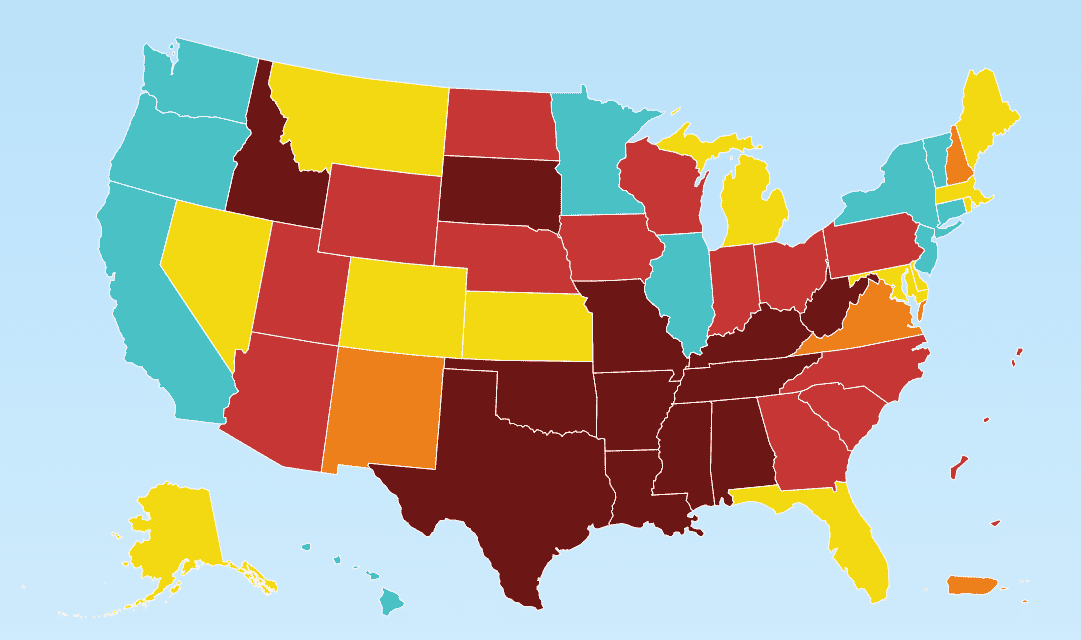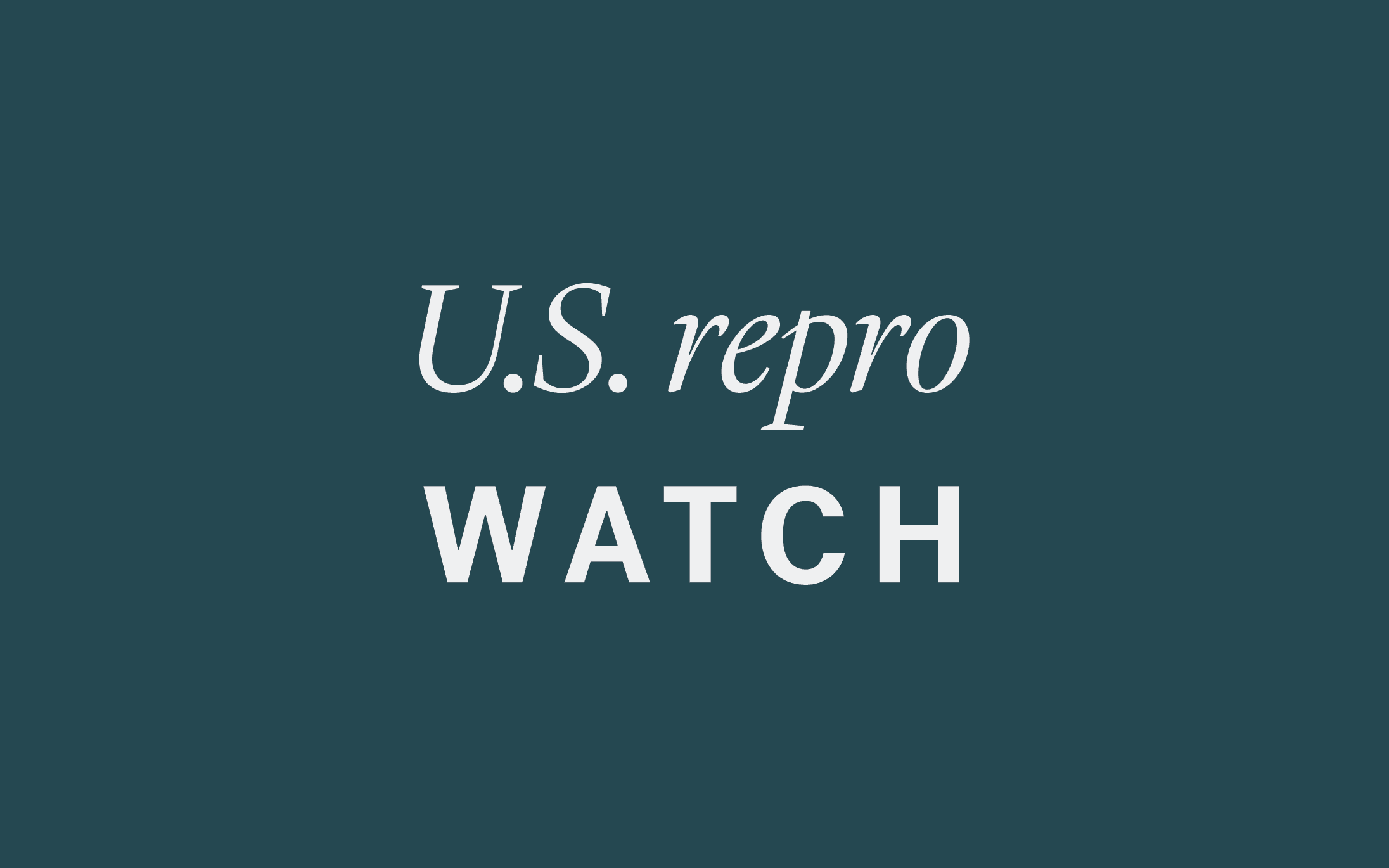U.S. Repro Watch, Jan. 18
This week's top 3 news items on U.S. reproductive rights.
“U.S. Repro Watch” provides periodic updates on news of interest on U.S. reproductive rights. Here are three recent items you won’t want to miss:
1. Bills to ban, restrict and protect abortion are being introduced across the country as state legislatures reconvene.
More on abortion laws and policies in the states.
After Roe Fell: Abortion Laws by State
Explore this interactive map to learn more about each state’s abortion laws and policies, updated in real time.
- Virginia legislators introduced a ban on abortion after 15 weeks of pregnancy, threatening physicians with criminal penalties of up to 10 years in prison and/or $100,000 in fines. At the same time, a resolution was filed calling for a constitutional amendment to establish the right to reproductive freedom.
- A Nebraska lawmaker is planning to introduce a bill banning abortion after about six weeks of pregnancy. The same lawmaker proposed a total abortion ban last year, an effort that failed.
- In New York, lawmakers proposed a bill seeking to protect abortion providers who use telemedicine to provide abortion pills, as well as their patients.
- In New Mexico, lawmakers are seeking to shield abortion providers and patients from harassment and investigations by out-of-state actors. State legislators also outlined legislation to prohibit local restrictions on abortion access.
- Michigan lawmakers introduced a bill to repeal the state’s 1931 total abortion ban. While the right to abortion is now protected under the Michigan state constitution, the state’s pre-Roe ban remains on the books.
2. Illinois lawmakers passed legislation on January 10 to protect abortion providers and patients.
- The bill aims to shield Illinois abortion providers and patients from legal actions by other states. Last year, six states and Washington, D.C. enacted similar shield laws.
- The legislation would also require state insurance plans to cover medication abortion without copays.
- Gov. J.B. Pritzker signed the bill into law on January 13.
3. The U.S. House of Representatives passed two anti-abortion measures on January 11, largely along party lines.
Read more.
U.S. Repro Watch, Jan. 13
Read last week’s U.S. Repro Watch.
- One was an initiative that would criminalize decision-making around compassionate care for newborns with fatal conditions. During the midterm elections in November, Montana voters rejected efforts to pass a similar measure in the state.
- The other was a resolution condemning attacks on anti-abortion facilities, including crisis pregnancy centers, which use deceptive practices to divert people away from receiving abortions. In response, Reps. Diana DeGette, Barbara Lee, and Ayanna Pressley introduced a resolution highlighting the alarming number of attacks on abortion clinics.
- A bill banning abortion after approximately six weeks of pregnancy was also introduced in the House.
Coming Up
January 19: Arguments scheduled at the Indiana Supreme Court on the state’s total abortion ban.
- Abortion providers challenged the ban in August, arguing that it violates the state constitution.
- Indiana passed the law during a special session this past summer, making it the first state to pass new legislation banning abortion after Roe was overturned.
- The hearing, scheduled for 9 a.m., will be livestreamed here.
January 22: 50th Anniversary of Roe v. Wade
Read more.
Center in the Spotlight
Read select media coverage featuring Center leaders across the globe.
- Sunday, January 22 marks what would have been the 50th anniversary of the Roe v. Wade decision recognizing the constitutional right to abortion. Since the U.S. Supreme Court overturned Roe in June 2022, abortion has become unavailable in 14 states.
- Two Roe Day events feature Center attorneys.
Did you know?
Abortion bans are impacting patients’ ability to access essential medication to treat cancer and other conditions, and research shows that the majority of people who need such medication are women.
Methotrexate is a drug used to treat a range of conditions including Crohn’s disease, lupus, and some cancers. Because the drug is also used to treat ectopic pregnancies, some practitioners have refused to dispense the drug for fear of being prosecuted. The study by KFF (Kaiser Family Foundation) found that seven in 10 people with a methotrexate prescription were women, most of whom were not pregnant over the course of the year. The vast majority had an autoimmune disease such as rheumatoid arthritis and approximately one in five had a cancer diagnosis at some point in the year. Several instances of patients being denied access to such medication have emerged since state abortion bans took effect.


